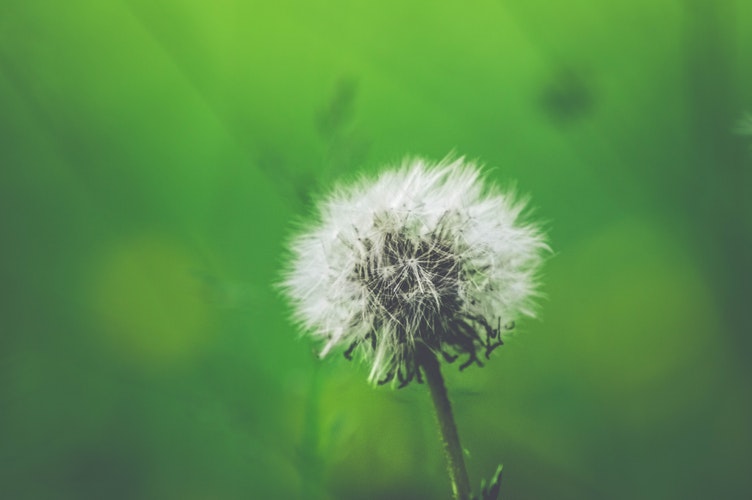Spring and summer are lovely seasons to spend time outside, unless, of course, you have hay fever or allergic asthma. If this is the case, you’ll probably be spending a lot of time indoors, hoping that your symptoms won’t get any worse.
Sadly, sometimes you aren’t safe from allergies even in the comfort of your own home, which means that you’ll experience symptoms no matter which room of the house you are in.
If you’re looking for effective ways to stop allergies at home, you’ve come to the right place.
Keep The Floors Clean
Floors are the places where a lot of allergens can be found, especially if you have thick carpets.
Hardwood and linoleum floors are best left bare or covered with simple, small, washable rugs. On the other hand, not everyone can simply throw out their rugs and carpets and call it a day.
If you want to have carpeted floors, ditch the high-pile carpets for low-pile ones and make sure you vacuum every week at least once. Try to get vacuum cleaners that have HEPA or small particle filters because these will be more effective in your fight against allergens.
Mind The Air
Fresh air is extremely important during allergy seasons, but if the air is full of allergens you’re only going to feel worse. Instead of keeping your windows open all morning or evening, keep them closed and rely on air conditioning.
Today, you can easily find an effective whole house air purifier that you can use to make sure the air is clean in every room of your house.
It’s also a good idea to make sure the air filter in your bedroom directs clean air to your head while you sleep because it will help you sleep better and wake up refreshed.
Cleaning Routine
Speaking of your sleeping habits, try to change your bed sheets more often during allergy seasons.
Allergens can get stuck in your pillows, blankets, and mattresses, especially if they’re filled with feathers and wool, so it’s a good idea to replace them with synthetic materials.
When washing blankets, sheets, and pillowcases, use heated water (at least 130 F) because this way you will remove dust, germs, and allergens.
When picking curtains, go for ones that are made of synthetic fabric or plain cotton, and think about replacing your horizontal blinds with roller shades as they can be washed.
Shower Often
Warm weather makes us want to shower more often since we sweat more, but showering more often also means that you’ll ease some of your allergy symptoms.
Seeing as dust, pollen, and other allergens can get stuck in your hair, washing it more often means that you’ll get rid of them.
This is especially important if you use mousse, gels, or oils to style your hair. Washing your hair before bed will help you sleep without sneezing and coughing all night long.
Groom Your Pet
If you have a pet, your allergies could get worse even if you’re not allergic to their hair specifically. Just like with your hair, pets’ fur can be filled with allergens, especially after spending some time outside, which is why regular grooming is a must.
If combing your pets triggers your allergies, ask a family member to do it for you, preferably outside, and make sure that the comb is dipped in distilled water.
Distilled water will trap dander so when they come back inside they won’t be leaving dust or dander around.
Humidity & Temperature
If you’re allergic to mold and dust mites, you should put effort into keeping your home cool and dry.
Houses that are hot and humid are the perfect breeding grounds for these allergens, and what is more, such environments make it harder for a person with asthma to breathe.
The right temperature in your home should be somewhere between 68 F and 72 F (20-22 C), while the humidity in your house shouldn’t be higher than 50%.
Check the filters in your heating and cooling systems at least once a month and replace them every three to four weeks during allergy seasons.
Dehumidifiers are great, but if you notice that the problem persists, check the roof as well as the ceiling for water leaks.
No matter how hard you work, there will always be some traces of allergens in your home because our houses aren’t hospitals and can never be perfectly sterile.
On the other hand, if you follow these simple tips, you will be able to remove allergens from around your house almost completely. This means that you and the rest of your family will be able to breathe without fear that your allergy will be triggered.
You can find much more information on living a holistic lifestyle in these free magazines and on our YouTube channel.
 Diana Smith is a full time mom of two beautiful girls interested in topics related to health and alternative medicine. In her free time she enjoys exercising and preparing healthy meals for her family.
Diana Smith is a full time mom of two beautiful girls interested in topics related to health and alternative medicine. In her free time she enjoys exercising and preparing healthy meals for her family.






